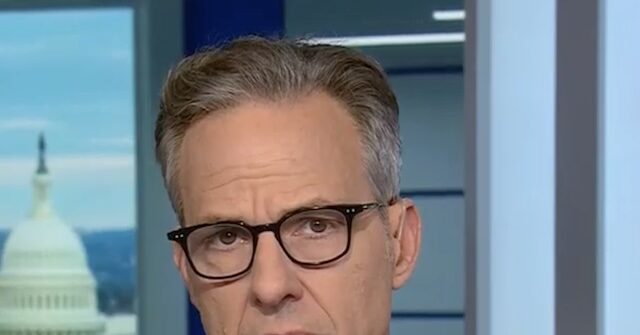On a recent episode of CNN’s “The Lead,” host Jake Tapper expressed his disdain over President-elect Donald Trump’s selection of Robert F. Kennedy Jr. for the position of Secretary of Health and Human Services, humorously suggesting that Americans should brace themselves for a resurgence of preventable diseases like measles. His comment reflects broader concerns about the potential implications of Kennedy’s confirmation on public health policies, particularly regarding vaccinations. Tapper’s stance underscores the anxieties surrounding Trump’s appointment choices, as many fear they could lead to a rollback of health initiatives that emphasize immunization and overall public health.
Tapper’s discussion involved insights from political commentator Adam Kinzinger, who speculated about the likelihood of confirmations for Trump’s cabinet picks. Kinzinger expressed skepticism regarding the confirmation of controversial figures like Matt Gaetz, acknowledging the resistance he might face from both Democrats and some Republicans in the Senate. The conversation highlighted the potential divisions within the GOP, especially among Senate Republicans who previously voted to impeach Trump. Kinzinger pointed out that those members may be more cautious, particularly as they approach reelection, putting pressure on them to navigate their party’s dynamics while making decisions that could impact public health.
Bedingfield, the former Biden White House Communications Director, weighed in on the situation, suggesting that Democrats should proactively present a positive vision to contrast Trump’s appointments. This sentiment indicates a shift in strategy for Democrats, who may need to clarify their values and health policies in response to the incoming administration. It reinforces the idea that political discourse will be importantly shaped on this issue, potentially fueling significant debates on public health and vaccine policy moving forward.
The apprehension surrounding Kennedy’s nomination stems from his history of promoting vaccine skepticism, which aligns with certain factions within the anti-vaccine movement. This has raised alarms among health professionals and advocates who view vaccinations as essential components of public health. Tapper’s comments resonate with these concerns, as they reflect the fears that compromises in health leadership could lead to a resurgence in preventable diseases, particularly among vulnerable populations. This concern is not merely about individual health choices, but about broader public health implications for the nation.
In the context of the discussion, Kinzinger’s insights reflect a broader concern about party loyalty versus public responsibility, especially when it comes to health policies that affect the entire population. The potential controversies surrounding confirmations will likely dominate political narratives in the coming months, especially as key legislation and health guidelines emerge. As conversations around public health continue to evolve, the stakes remain high for both party politics and the welfare of Americans as they grapple with the ramifications of these appointments.
As the political landscape shifts with the incoming Trump administration, public health advocates, and lawmakers are preparing for significant confrontations regarding health policy. Whether through legislative battles or public advocacy campaigns, there will likely be robust dialogues about the direction the nation should take concerning health standards and vaccine recommendations. The dynamics of resistance among Senate Republicans, the proposals from Democrats, and public sentiment will all intertwine as America navigates this pivotal moment, potentially shaping the future of healthcare in profound ways.

